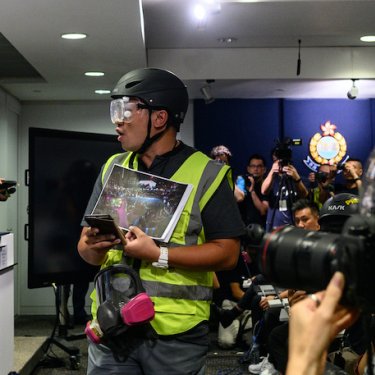Hong Kong government adopts accreditation policy that discriminates independent media and freelance journalists

Reporters Without Borders (RSF) calls on the Hong Kong government to reverse its media accreditation policy that only acknowledges “internationally recognised” media and de facto excludes independent outlets and freelance journalists.
In a statement published in late September, eight media organisations including Hong Kong Journalists Association (HKJA) denounced the new government media accreditation policy which only acknowledges “internationally recognised” media, without specifying a clear definition, and de facto excludes independent outlets, freelance and student journalists from accessing official press conferences and restricted areas.
“These discriminatory measures, which could allow the government to arbitrarily deny accreditation for media that displeases it, are another attack against press freedom which is enshrined in the Basic Law”, says Cédric Alviani, Reporters Without Borders (RSF) East Asia Bureau Head. “Some freelance reporters covering prohibited or violent events risk, if arrested, being denied the status of a journalist and could therefore be held accountable for incidents which they were only witnesses for.”
On 30th June this year, the Chinese regime also passed a National Security Law which allows it to directly intervene in the special administrative region of Hong Kong to suppress, with the appearance of legality, anything it deems to be “terrorism”, “secession”, “subversion” or “collusion with foreign forces”. These four crimes can incur charges in the Mainland as severe as the death penalty and are often used as a pretext to prosecute journalists.
Hong Kong, once a bastion of press freedom, has plummeted from 18th place in 2002 to 80th place in 2020 in the RSF World Press Freedom Index. The People's Republic of China, for its part, remains at 177th out of 180.



